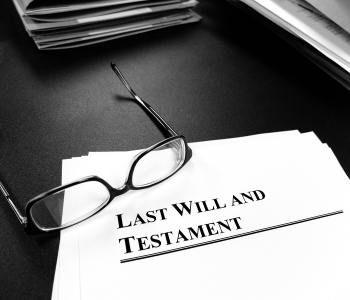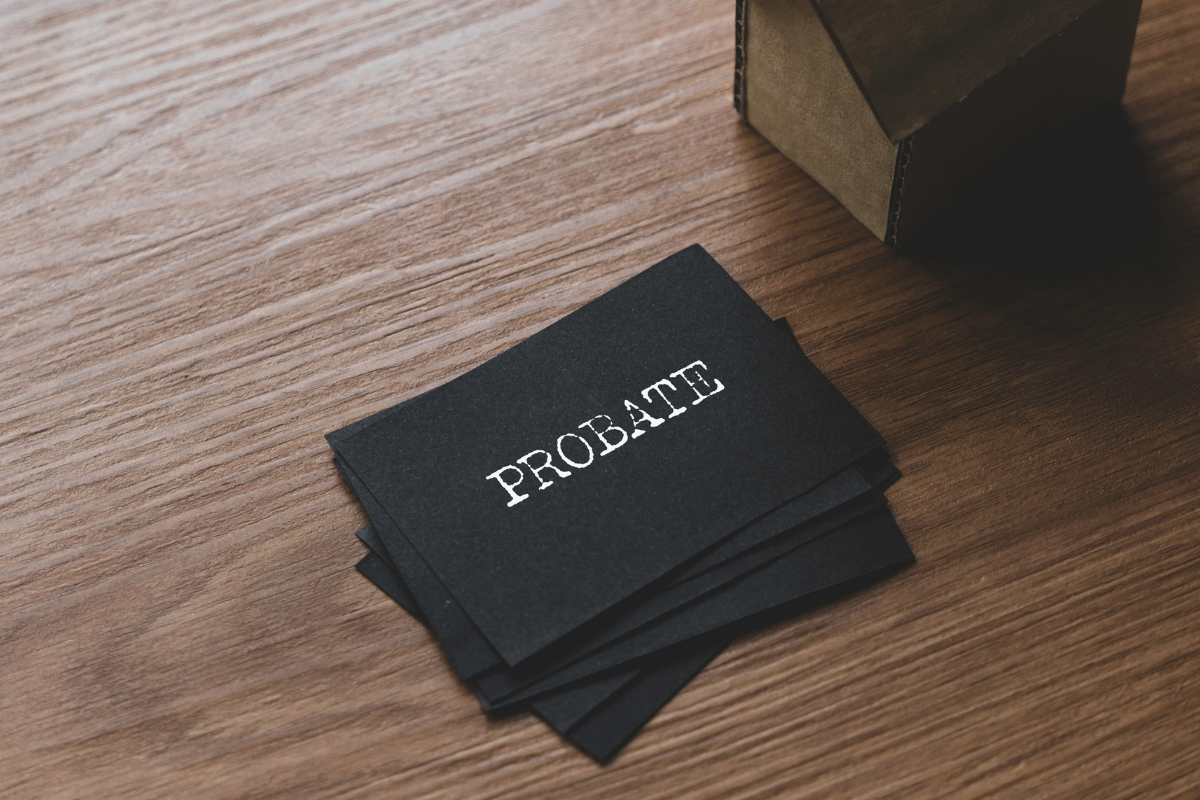Selling a House in Probate in Texas Guide
Dealing with probate can be an overwhelming experience as you navigate the emotions of losing a loved one and ensure that their property is handled in the best way possible. The probate procedure can often involve selling a Texas house. What goes into selling real estate in probate? It depends on the situation’s specifics, but we’ll unravel everything here.
Also, remember that a house in probate doesn’t necessarily have to be sold, mainly if there are no mortgages or other types of liabilities related to the decedent’s estate that might affect that.
Table Of Content
1. Probate Sale Meaning Texas
2. Probate Procedure for Selling Property in Texas
3. When Can the Personal Executor Sell Probate Property in Texas?
4. Can You Sell a House Before Probate is Complete in Texas?
5. Do You Need To Go Through Probate To Sell an Inherited House in Texas?
6. Texas Probate House Sale Issues
7. Options To Consider When Selling a Probate House in Texas
8. Probate House Sale FAQ’s
9. The Easiest Way To Sell a Texas House in Probate
Probate Sale Meaning Texas
What’s a probate sale? Let’s first define probate.
Probate is the formal process that ensures that an estate’s assets are passed on to the intended people and entities and that financial obligations to lenders are handled.
A probate sale occurs when at least some of the assets, possibly including a house, are sold instead of passed directly on to beneficiaries. The money is then given to those individuals or to creditors.
Also, the personal representative, who handles the administration of those assets and represents the decedent’s wishes as best as possible, may determine that it’s better to pass on those funds to beneficiaries or creditors rather than the real estate itself. There are cases when it’s clear who that real estate should go to, but that person wants to sell it as soon as possible, including before probate has ended.
Regardless, it’s important to remember that a probate sale can’t be finalized until the court confirmation hearing. During that court proceeding, the judge will typically allow anyone from the general public to outbid any current offer. However, despite the risk of being unable to buy your probate house, Sell My House For Cash TX is ready to present a cash offer.
Probate Procedure for Selling Property in Texas

Do you have a local statutory probate court with which to file a probate? In many cases, the answer is “Yes.” Of the Lone Star State’s 15 largest metropolitan areas, there are 10 designated statutory probate courts. You can work with your county clerk’s office if you don’t. That’s also who you should contact if you’re unsure where to go to take care of your probate claim.
Once it’s time to do this, bring the required documentation, such as a will, if one was created by the deceased person before their death, and a certified death certificate. Also, be ready to pay any required taxes or fees.
One of the most important initial steps of this process is the appointment of a personal executor. This is a simple procedure in many situations, such as when the decedent made clear who the personal representative should be and that individual accepts the role.
However, sometimes, it’s not clear at all. In that case, the probate judge is in charge of appointing someone to that position. Anyone interested can offer to take it on. The judge usually considers how detail-oriented they are and whether they’ll potentially have a conflict of interest. That said, no specific qualifications are required.
After being appointed, this individual will, if appropriate, begin selling the probate house. However, that’s just one of many duties of the personal executor. Others related to this inheritance include ensuring that everything’s done by the will as best as possible and that debts left behind are handled. Of course, the final income tax return should be filed. Having said that, Texas does not have an inheritance tax, in contrast to other states.
Other duties are specifically connected with the probate house, such as ensuring that any capital gains tax is paid, which is necessary if the real estate’s value is higher at the time of the sale than when the decedent passed away.
When Can the Personal Executor Sell Probate Property in Texas?
The personal representative can immediately seek buyers for the Texas probate house. However, this generally can’t be finalized until the court confirmation hearing, and that latter gathering sometimes results in the judge accepting overbids.
If the decedent left behind a substantial amount of debt, whether related directly to this house or otherwise, that can complicate things. However, the intent remains to sell the probate real estate for as much as possible.
Can You Sell a House Before Probate is Complete in Texas?

You can seek buyers, such as Sell My House For Cash TX, at any time once a personal representative’s been appointed and then sell that probate house, dependent on the court’s approval at the court confirmation hearing.
Note that the court confirmation hearing isn’t when probate is finalized. That part occurs later. So, yes, you can sell real estate before probate is complete in Texas.
Once the probate real estate sale is finalized, the money is sent to the appropriate entities. The specifics depend on whether any debts need to be paid off, whether those are mortgages connected with that real estate, and any other factors related to the relevant heirs and other beneficiaries. The sale proceeds are often directed towards a probate escrow account before passing on.
Do You Need To Go Through Probate To Sell an Inherited House in Texas?
There are a few ways to avoid the probate process and sell a house without it. That said, most of those involve the decedent having already done something to prevent this scenario. In other words, this is generally not possible after that person has died.
One way that the decedent can ensure that probate is avoided after their passing is to utilize a living trust to distribute their assets to their heirs and other beneficiaries. The primary reason why this is possible is because those assets were owned by the trust before they died.
There’s also a transfer on the death deed, which allows a decedent to pass on a house and other types of real estate to others without probate. By utilizing this, the decedent ensures that this property is never part of the estate.
Another option is ensuring that two people jointly own a house, which is often the case for spouses. In that case, if one dies, the surviving spouse would solely own that real estate without the need for extensive paperwork or time in court necessary to complete that process.
Also, remember to keep a document proving ownership in mind. This won’t remove the need for probate, but it’ll make it a much simpler process than would otherwise be the case. However, it’s only possible if there aren’t any debts other than liens on real estate.
A tiny estate affidavit, which would also substantially simplify matters, is only feasible in the event that the estate is truly “small,” that is, valued at up to $75,000.
If the situation involves an intestate estate because no will was left, probating and appointing a personal representative are required steps in estate planning. In that case, spouses, siblings, parents, and other relatives would likely receive most of the inheritance.
Texas Probate House Sale Issues

The main issue with selling a probate house in Texas is that buyers are generally hesitant to purchase one because it’s challenging to know the specifics of the place, and the process can be drawn out as it makes its way through the court system. That timeline could be extended even more if the situation includes many complicated financial issues or paperwork.
A buyer would need to purchase the probate real estate for at least 90% of its appraised value and have that purchase approved by the court. Overbids, which must be at least 5% plus $500 over that offer, are usually welcomed by the judge before approval, but they could cause the buyer to ultimately lose out on owning it.
Another potential issue for a seller of probate real estate is that previous debts may result in minor or none of the money it sells going to any beneficiaries, but that won’t impact how easy or difficult it is to sell.
Options To Consider When Selling a Probate House in Texas

When you need to sell probate real estate in Texas, you can take one of a few different pathways. Make sure to consider the differences between them carefully.
List the Probate Property With a Texas Real Estate Agent
If you want to sell a probate property in Texas, you could hire a real estate agent and list it.
This is a commonly used option, and it has pros. Those include working with someone who understands the local real estate market and knows how to maximize the amount of money received for a probate house.
However, this is also an incredibly time-consuming option, and it can involve a lot of legwork, such as costly cleaning and renovations once you’re legally allowed to do so, as well as taking care of insurance expenses and ensuring that no taxation issues arise before it’s sold. Also, remember that the final selling price when going through a realtor is usually reduced significantly once costly fees and related expenses are applied.
Selling the Inherited Property Yourself in Texas
Selling the Texas probate property on your own or going FSBO (for sale by owner) is a comparable choice. That means that you’re essentially the agent. This may sound like a more straightforward option, but, in many ways, it’s not, particularly for those who aren’t experienced with selling houses. However, a pro is that you won’t have the sales price reduced by realtor fees or commissions.
This is an incredibly inviting option if the sale is expected to be simple, such as to a close friend or family member. Even then, please do your due diligence to ensure it’s ultimately handled and sold in the best way possible.
Selling A Texas Probate House As-Is to A Cash Home Buyer
If you need to sell Texas real estate in probate, another option is to sell it to a cash home buyer. Sell My House For Cash TX is one to consider as we understand all of the nuances that go into a probate sale and would simplify that process for you as we handle the complicated elements on our end. We’re also not hesitant to take on the risks of a probate house sale.
Also, consider that we buy houses as-is, which means that yours can be in any condition. You don’t have to clean or repair anything, which can be costly, and you won’t need to remove anything other than what you want to keep or pass on to others.
Probate House Sale FAQ’s
Can you live in a house during probate?
You can usually live in a house during probate, but you want to make sure not to move anything out of it while there. Also, the situation can get complicated if multiple people are heirs or other beneficiaries and only one or some live in that real estate during probate. In contrast, others want to but aren’t allowed to.
Regardless, one clear example of when a house can’t be lived in during probate occurs when the decedent has rented it out. That contract needs to be seen to its conclusion before anyone else can live there, or a legal agreement to end it early must occur.
Can you empty a house before probate in Texas?
If the probate process in Texas hasn’t been completed yet, but you’ve been 100% approved as the owner of the inherited real estate, you can empty the property before the probate is finished.
However, before that happens, you can’t empty a house. That means you shouldn’t remove or throw out anything, even living in the home. One reason is that the items there aren’t yours to do with as you wish. Plus, there may be ones that appear junk to you but are instead worth a lot.
How long does it take to sell a house in probate?
Once a personal executor has been appointed, receiving an offer for a probate house cannot take much time, mainly if you work with Sell My House For Cash TX, as we can get that offer fast. However, finalizing the process often takes months as the buyer must be approved, and in many situations, overbids are allowed to occur at the last minute.
Do all beneficiaries need to agree to sell inherited property?
It does simplify the situation if all beneficiaries agree to sell the inherited real estate and other assets. However, it isn’t required. When there is disagreement, the process tends to cost much more money and time. In some cases, when those individuals cannot agree on selling an inherited property or what to do with it, the judge will order an auction, similar to a foreclosure auction, and then ensure that those funds are dispersed accordingly.
The Easiest Way To Sell a Texas House in Probate
Sell My House For Cash TX offers the simplest solution for those who need to sell a Texas house in probate. We’ll provide a fast cash offer and adhere to that as long as there are no later overbids at the court confirmation hearing, resulting in someone else buying the property instead.
If you have any questions about how this works, whether you’re the personal executor or not, reach out. You may do so by filling out the contact form on our website or calling our office at (214) 347-7020. We’ll communicate the information you want to know and provide valuable advice.
Contact us! We can help you in all cities and counties in Texas, Dallas, Fort Worth, Houston, Austin, San Antonio, Denton, Garland, and Arlington. We also work with different types of properties, ranging from houses to mobile homes to condos to duplexes.
Resources To Help You Sell A Property In Texas


